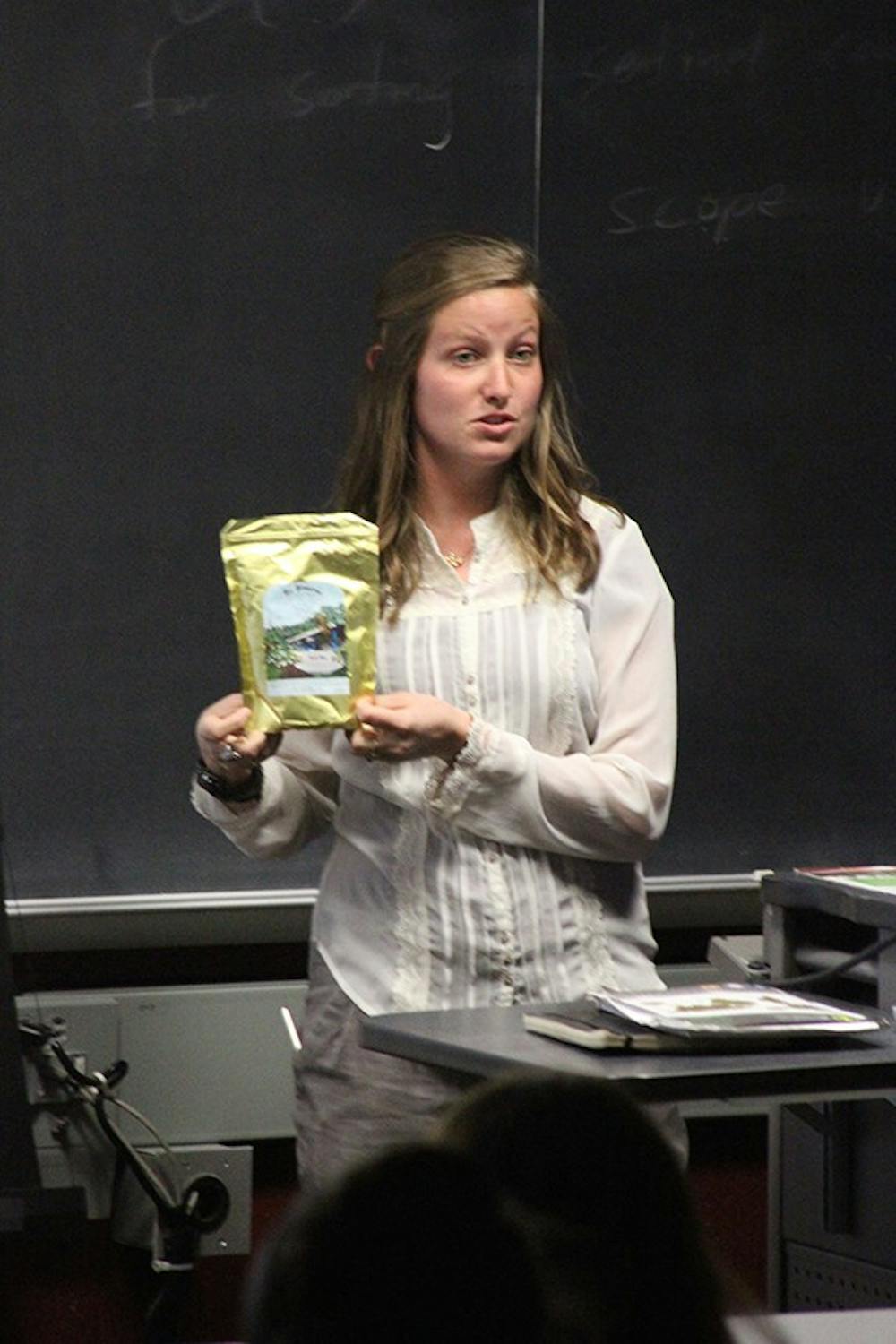An undergraduate student presented a lecture about the little known facts of the Fair Trade coffee movement on April 15, in the Dauphin Humanities Center at Shippensburg University.
Julia Saintz, who is double majoring in geo-environmental studies and history at SU, received the Rich-Peirce Grant to conduct her honors capstone project, which she presented on for the coffee lecture.
Saintz visited Colombia and learned first-hand about fair trade coffee bean farms. She saw about 11 to 15 farms in South America and learned a lot of information about how fair trade is not entirely as fair as many Americans think.
There were several professors and approximately three-dozen students in attendance to listen to what she had learned in Colombia.
In the steep high lands of Colombia, coffee beans grow at an astounding 3,000-6,000 feet in elevation.
Small families often work the fair trade coffee bean farms, and there are also occasional workers who are paid per kilogram of coffee beans they produce, Saintz said.
A problem for coffee bean farmers is that they lose a percentage of their profit, because some of their coffee beans are unripe and cannot be used.
The members of the coffee bean “cooperatives” personally own about five hectares of coffee bean farms, which is equivalent to two-and-a half football fields.
The cooperatives are the regulators of the “Fair Trade Certification.” They buy the coffee directly from the small coffee bean farmers. Coffee farmers must give the cooperatives 1 percent of their coffee beans.
There are many problems concerning Fair Trade that are advertised worldwide. For example, the certifications made by the cooperatives are biased, irregular and over simplified, Saintz said.
Other unfair qualities are that the workers are not protected, there are no higher wages and there are no social benefits. Saintz personally asked a large farm owner about how she used her sobrepeso, which is the profit made by the cooperatives.
The owner explained that she put the money she got “into the land” to maintain her coffee bean farm. Meanwhile, she was wearing gold necklaces and many gold rings.
Saintz’s advice to the community is to “know your company,” and ask, “Do they have a relationship with the cooperatives?”
Student uncovers truth about Fair Trade coffee




The Slate welcomes thoughtful discussion on all of our stories, but please keep comments civil and on-topic. Read our full guidelines here.